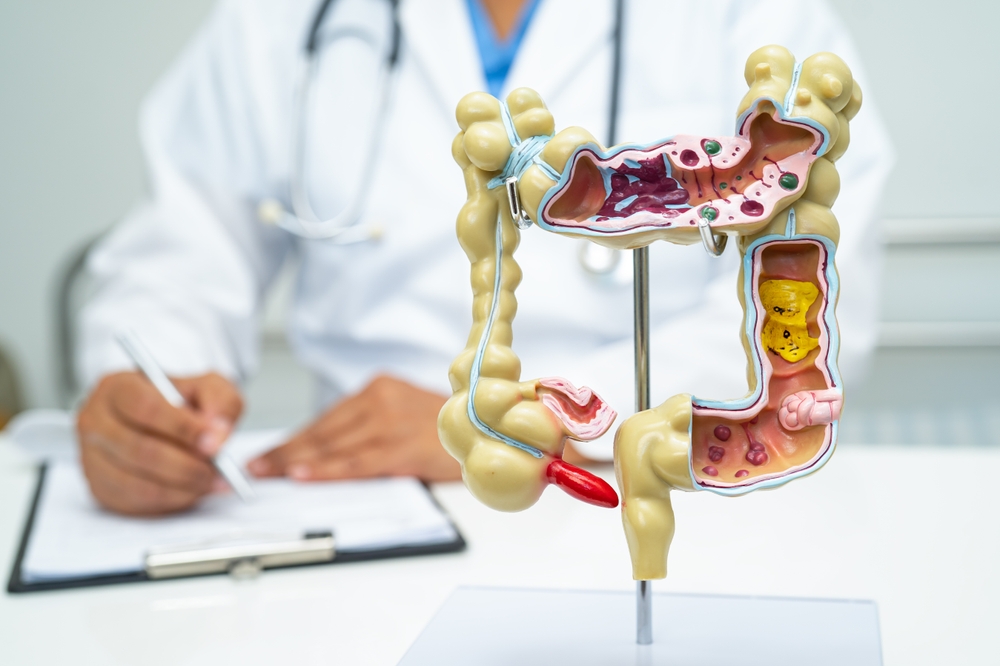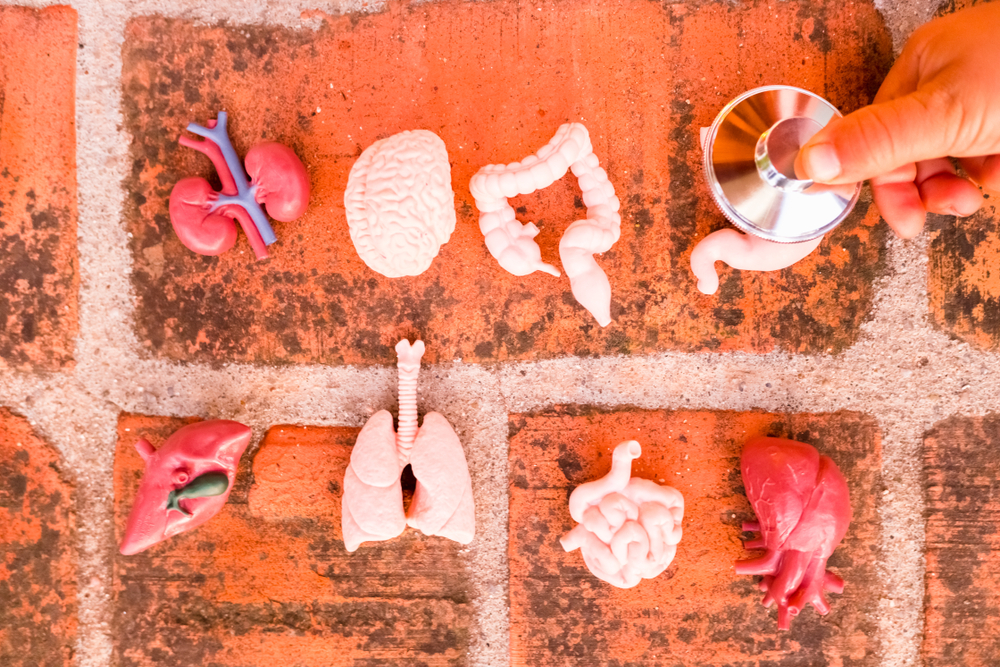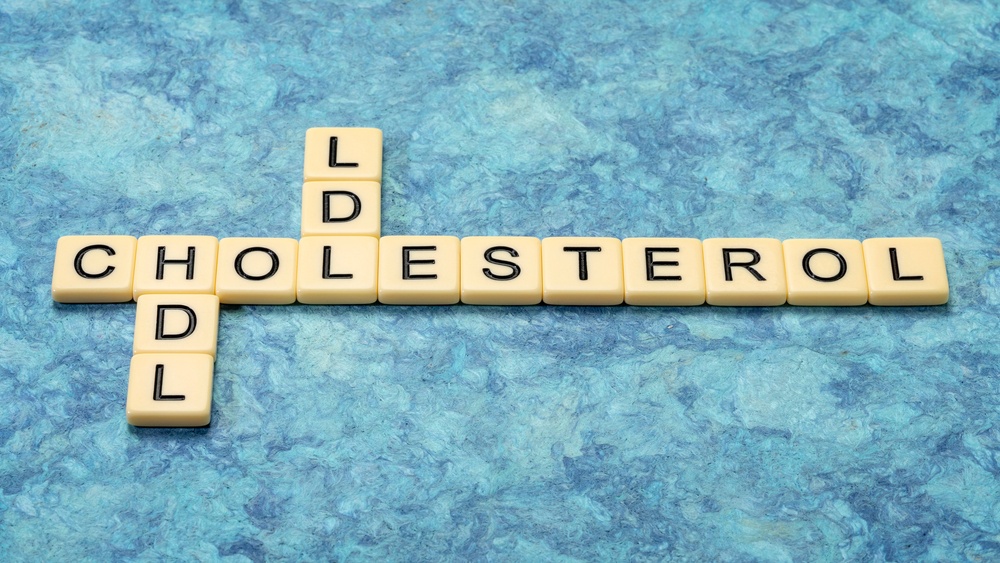Quick Summary
- Hormones and gut health work closely together. A change in one can affect the other, often leading to digestion problems or discomfort.
- The gut microbiome plays a role in hormone balance. When gut bacteria are out of balance, symptoms like bloating or mood shifts can occur.
- Sex hormones like estrogen and progesterone affect how the gut functions. Their levels fluctuate during menstruation, pregnancy, and menopause, which can impact digestion.
- Thyroid and stress hormones also influence the gut. Low thyroid levels or prolonged stress can slow down digestion and affect the gut lining.
- Throughout a woman's life, hormonal phases such as menstruation, pregnancy, and menopause may shift gut bacteria, bowel movements, and inflammation.
- Healthy habits, a diet rich in nutrients, and treatments like Fem Excel's estradiol therapy can support both hormonal and gut balance, improving long-term health and daily comfort.
Your gut does more than process food. It also helps control hormone balance in the body. At the same time, hormones regulate the function of your gut, including its motility, nutrient absorption, and waste removal.
When hormone levels change, your gut can respond in ways that affect how you feel. For example, women often experience changes in digestion during their menstrual cycle, pregnancy, or menopause. These phases bring hormone shifts that can lead to bloating, constipation, or other digestive issues.
This illustrates the close connection between gut health and hormones. A balanced gut supports your overall health, including mental clarity, energy levels, and digestion. When your gut is out of balance, hormone function may also suffer.
This blog explains how shifts in hormones can impact your gut health and digestion. The goal is to help you understand how your gut and hormones work together and why this matters for your daily comfort and long-term well-being.

Why The Gut Affects Your Hormones
The gut does more than help with digestion. It also works closely with the endocrine system, which controls the body's hormones.
These hormones regulate essential processes, including growth, metabolism, stress response, and mood regulation. Because the digestive system and hormone systems interact, changes in one can affect the other. Inside the gut, there is a large colony of tiny living organisms.
This group is called the gut microbiota. It includes various types of intestinal bacteria, as well as viruses and fungi. When these organisms stay in balance, they help keep the body working properly. One of their key jobs is supporting hormone production and helping to manage hormone levels.
This system talks to the rest of the body. It sends signals that influence how hormones function and how they are metabolized after use. Some microbes even produce compounds that mimic hormones and influence hunger, mood, or inflammation. The immune system also relies on the gut.
The bacteria help the body tell the difference between what is harmful and what is not. Since hormones also affect the immune system, the link becomes even stronger. When the gut microbiome and gut microbiota fall out of balance, hormone and immune changes may follow.
That is why the gut is now considered a crucial component of both hormone regulation and overall health.
How Sex Hormones Influence The Gut
Sex hormones such as estrogen and progesterone are often linked to reproductive health. However, they also impact the gut microbiome, which supports digestion, immune function, and inflammation.
When hormone levels fluctuate during menstruation, pregnancy, or menopause, many women experience changes in gut health. These shifts happen because estrogen affects the gut in several ways. It can change how food moves through the digestive tract, how nutrients are absorbed, and how microbes behave.
At the same time, the gut microbiome plays a role in processing these sex hormones. Certain gut bacteria break down estrogen into forms that the body can use or remove. This breakdown is called estrogen metabolism. If the gut microbiome becomes unbalanced, estrogen metabolites may build up in the body.
As a result, the body holds more active sex hormones than it needs. This condition is called estrogen dominance. It can cause digestive issues, including bloating, constipation, and gas. These symptoms often appear during hormone changes, which can make the cause hard to identify.
Maintaining a balanced gut microbiome supports healthy estrogen metabolism. Stress, a poor diet, or frequent antibiotic use can disrupt this balance. When that happens, the body may struggle to manage sex hormones properly. Over time, these changes can affect both gut health and overall hormone function.
How Thyroid And Stress Hormones Affect Gut Health
The digestive system relies on a balanced mix of hormones to function properly. Two groups often overlooked are thyroid hormones and stress hormones from the adrenal glands.
These hormones can influence the gut in subtle but significant ways. The thyroid gland releases hormones that regulate the speed of digestion. When thyroid hormones are low, gut motility slows, causing bloating, constipation, and discomfort.
On the other hand, excessive thyroid hormones can accelerate digestion, potentially leading to diarrhea and poor nutrient absorption. Patients with thyroid disorders frequently experience shifts in intestinal permeability. This refers to the permeability of the gut lining, which allows unwanted particles to pass through into the bloodstream.
One review confirmed that people with Hashimoto's thyroiditis often have increased gut permeability, linking thyroid issues to structural changes in the gut lining. [1] The adrenal glands release stress hormones, such as cortisol, in response to stress.
Short-term stress can help your body adapt to changes. However, long-term stress keeps cortisol high. This prolonged exposure can reduce blood flow to the digestive system, slow gut motility, and disrupt the balance of gut bacteria.
A study published found that patients with Cushing's disease, a condition characterized by chronically high cortisol levels, exhibited clear changes in gut microbiota and weakened gut barrier function. The study also found a link between increased cortisol levels and higher levels of lipopolysaccharide-binding protein (LBP), a marker of inflammation. [2]
Together, imbalances in thyroid hormones and persistent stress hormones quietly impair gut function. These disruptions show up as bloating, irregular bowel movements, or sensitivity to certain foods.
Hormonal Milestones In Women And Their Digestive Impacts
Throughout life, women go through several hormonal phases. Each phase can bring noticeable changes to gut health. These changes are often the result of shifting hormones, which can affect bowel movements, digestion, and the sensitivity of the gut.
During the menstrual cycle, levels of estrogen and progesterone fluctuate. These hormones influence the movement of gut muscles and the response of nerves in the digestive tract. Many women experience bloating, changes in bowel habits, or food sensitivities, especially before or during their menstrual cycle. These symptoms usually pass, but can still be uncomfortable.
Birth control introduces artificial hormones into the body. These can affect how the gut functions and also alter the types of bacteria present in the gut. A study published showed that women using hormonal contraceptives had clear changes in gut microbiota compared to those using non-hormonal methods.
The differences also varied across the menstrual cycle. These shifts may explain why some women experience constipation or bloating when starting birth control. Though symptoms often improve, this research confirms that hormones influence the gut in multiple ways. [3]
Pregnancy causes another major hormone shift. Higher progesterone levels can slow down digestion. As a result, many women deal with constipation, bloating, or heartburn. These symptoms also occur alongside physical changes, like pressure on the intestines from the growing baby.
After childbirth, hormone levels drop quickly. Some women develop postpartum depression, which affects mood, appetite, and sometimes gut function. The brain and gut are connected, so mental and digestive symptoms often happen together during this time.
Later in life, menopausal symptoms can also affect digestion. Lower sex hormone levels may change gut movement and bacteria. Women in this stage often report gas, bloating, or new sensitivities to food.
Hormonal Imbalances, Gut Microbes, And Disease Risk
Hormonal imbalances do more than cause fatigue, mood changes, or irregular periods. They also affect gut microbes, which are tiny organisms in the digestive system.
These microbes help with digestion, immune protection, and even hormone regulation. When hormone levels shift too much, the gut can lose its balance. Over time, this may raise the risk of several health issues. One of the main concerns is the connection between gut health and the immune response.
A healthy gut supports the immune system and helps it respond properly. However, when the gut is out of balance, it can lead to chronic inflammation, which in turn may contribute to autoimmune diseases, where the immune system mistakenly attacks healthy tissues.
Changes in gut microbes can also impact how the body processes hormones, such as estrogen. When estrogen is not properly cleared, it can accumulate in the body. This increases the risk of hormone-related cancers, such as breast cancer and ovarian cancer.
Disrupted hormone levels and gut imbalance may also play a role in the development of uterine fibroids. These patterns show that hormone shifts are not only about short-term discomfort.

How Gut Health Affects Mood And Mental Clarity
The gut-brain axis is the link between your digestive system and your brain. This connection means that changes in your gut health can affect your feelings and thinking.
It also explains why gut issues often show up as changes in mental health or mood. Hormones play a crucial role in this communication, as they regulate stress, mood, and sleep. When hormones shift, such as during menstruation, pregnancy, or menopause, the gut can become unbalanced.
This led to changes in gut bacteria, which can, in turn, affect the brain. As a result, some people may feel more anxious, have a low mood, or experience fatigue. Another effect of hormone-related gut changes is brain fog. This term refers to slow thinking, poor focus, or feeling mentally tired.
If the gut fails to absorb nutrients effectively, the brain might lack essential resources. This can reduce cognitive function and make it harder to focus or remember things. However, keeping the gut healthy supports more than digestion. It also helps with memory, focus, and mood.
When gut bacteria are balanced, signals through the gut-brain axis stay clear. This allows the body to handle stress and maintain overall well-being.
Lifestyle, Diet, And Restoring Gut-Hormone Balance
Daily habits have a direct impact on both gut health and hormone levels. What you eat, how you sleep, and how you manage stress all play a part in supporting balance.
A healthy gut works in conjunction with the body to regulate metabolism, manage inflammation, and maintain steady hormone signals. One of the most effective ways to care for the gut is through a nutrient-rich diet. Fiber-rich foods, fermented items, and a variety of plants help nourish the beneficial bacteria that regulate digestion and hormone levels.
These bacteria also support hormone processing and reduce inflammation in the body. Vitamin D, whether from sun exposure, food, or supplements, supports the gut lining and has been linked to better hormone balance. Fem Excel supports women's health with treatments that help restore this balance.
In addition to nutrition support and gut testing, Fem Excel offers FDA-approved estradiol medication, which helps restore low estrogen levels. Estradiol therapy has been shown to relieve hot flashes and night sweats. It also improves skin hydration and elasticity, which are often reduced with low estrogen levels.
When combined with lifestyle changes, these treatments offer a fuller approach to wellness. Improved sleep, regular physical activity, and effective stress management also support the gut and balance hormone levels.
Conclusion
The gut and hormones work closely together. When one is out of balance, the other often feels the effect. This link affects many parts of human health, including digestion, mood, energy, and sleep.
A well-functioning gut helps the body handle hormones properly. At the same time, balanced hormones support gut activity and reduce discomfort. This back-and-forth relationship plays a big role in overall well-being. That is why it is helpful to care for both, not just when problems start, but as a regular part of health.
References
1. Lin B, Melnikov V, Guo S, Cao Z, Ye Z, Ye Z, Ji C, Chen J, Wang J, Zhang H, Jiang Y, Shi C, Chen Z, Zhang Q, Ma Z, Qiao N, Chen L, Wang M, Wang Y, Zhang Z, Ye H, Li Y, Zhang Y, Gao R, Yu Y. Concomitant gut dysbiosis and defective gut barrier serve as the bridges between hypercortisolism and chronic systemic inflammation in Cushing's disease. Eur J Endocrinol. 2024 Oct 29;191(5):509-522. doi: 10.1093/ejendo/lvae139. PMID: 39460431.
2. Zhu, X., Zhang, C., Feng, S., He, R., & Zhang, S. (2024). Intestinal microbiota regulates the gut-thyroid axis: the new dawn of improving Hashimoto thyroiditis. Clinical and experimental medicine, 24(1), 39. https://doi.org/10.1007/s10238-024-01304-4
3. Brito, J., Grosicki, G. J., Robinson, A. T., Coburn, J. W., Costa, P. B., Holmes, K. E., Lyon, G., Hakonsson, Z., Conti, F., & Galpin, A. J. (2025). Hormonal Birth Control Is Associated with Altered Gut Microbiota Beta-Diversity in Physically Active Females Across the Menstrual Cycle: A Pilot Trial. Journal of Applied Physiology. https://doi.org/10.1152/japplphysiol.00008.2025






